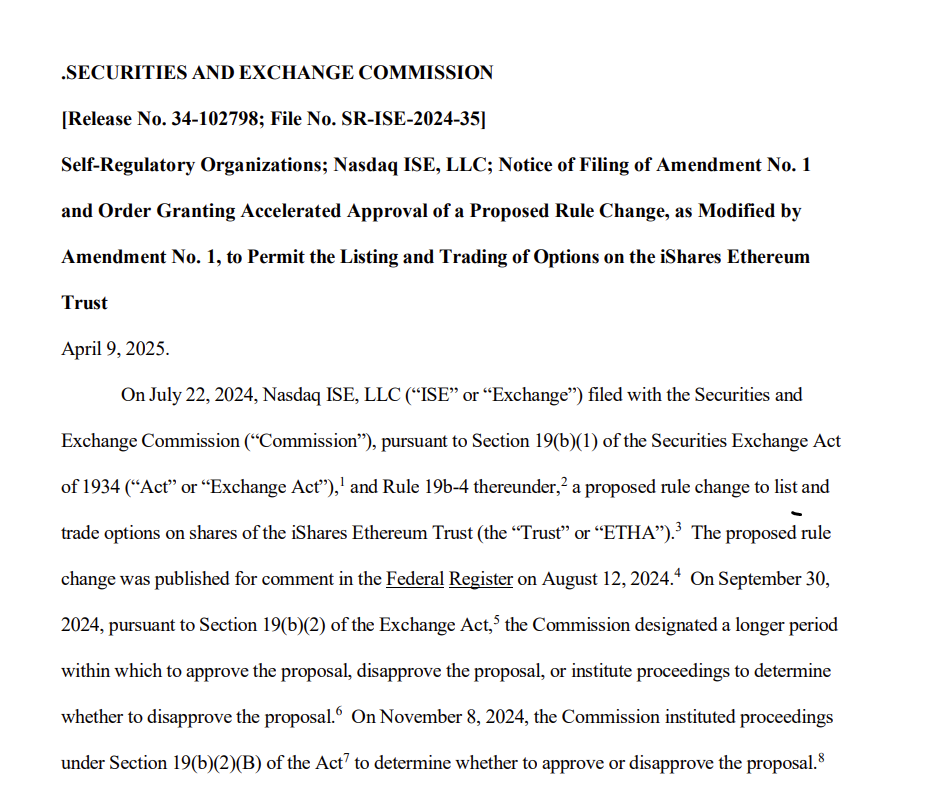The Securities and Exchange Commission (SEC) in the United States has given the green light for options trading on several spot Ether exchange-traded funds (ETFs), a decision that could enhance the investment attractiveness of Ether for institutional investors.
The SEC granted this approval on April 9 following a proposed rule change put forth by BlackRock for its iShares Ethereum Trust (ETHA) back on July 22, 2024. Similar authorizations were also extended to Bitwise Ethereum ETF (ETHW), Grayscale Ethereum Trust (ETHE), Grayscale Ethereum Mini Trust (ETH), and the Fidelity Ethereum Fund (FETH).
In its communication to Nasdaq, the SEC noted, “The Exchange proposes to amend its rules to allow the listing and trading of options on the Trust,” further adding:
The Exchange asserts that options on the Trust will provide investors an additional, comparatively lower-cost tool to gain exposure to spot Ether, along with a hedging instrument to meet their requirements related to Ether products and positions.

Approval for options trading on the iShares Ethereum Trust.
Options on ETFs serve as a portfolio management tool that enables investors to protect against asset declines. This addition is considered a significant development in enhancing Ether’s (ETH) investment appeal, especially after regulators authorized spot Ethereum ETFs in July.
However, net inflows into the spot Ether funds have remained relatively low, with the majority of institutional interest directed towards Bitcoin (BTC) funds.
Currently, BlackRock’s ETHA holds $1.8 billion in net assets, reflecting a 56% decrease since the beginning of the year, as reported by VettaFi.
Related: Ethereum price reaches a two-year low, yet professional traders remain optimistic
Changing Regulatory Landscape
Since Donald Trump’s election as President, the SEC has indicated a willingness to reduce its enforcement efforts concerning the crypto sector. While this shift was anticipated, legal experts from the Harvard Law School Forum on Corporate Governance expressed surprise at the rapid pace with which these changing priorities unfolded after Trump assumed office.
As reported recently, the securities regulator has concluded its investigations into multiple crypto entities, including the exchanges Gemini and Coinbase, decentralized exchange developer Uniswap Labs, and the NFT platform OpenSea.
On the legislative front, there is swift movement toward enacting pro-stablecoin legislation. The House Financial Services Committee has recently moved forward with the STABLE Act, aimed at formalizing the use of stablecoins within the United States, while the Senate Banking Committee has advanced the GENIUS Act, which seeks to regulate stablecoin issuers.
Additionally, lawmakers have suggested plans to advance a comprehensive legislative framework for the crypto market, which is anticipated to be finalized within this year.
Related: No crypto initiative has registered with the SEC and ‘lived to tell the tale’ — Congressional committee hearing
